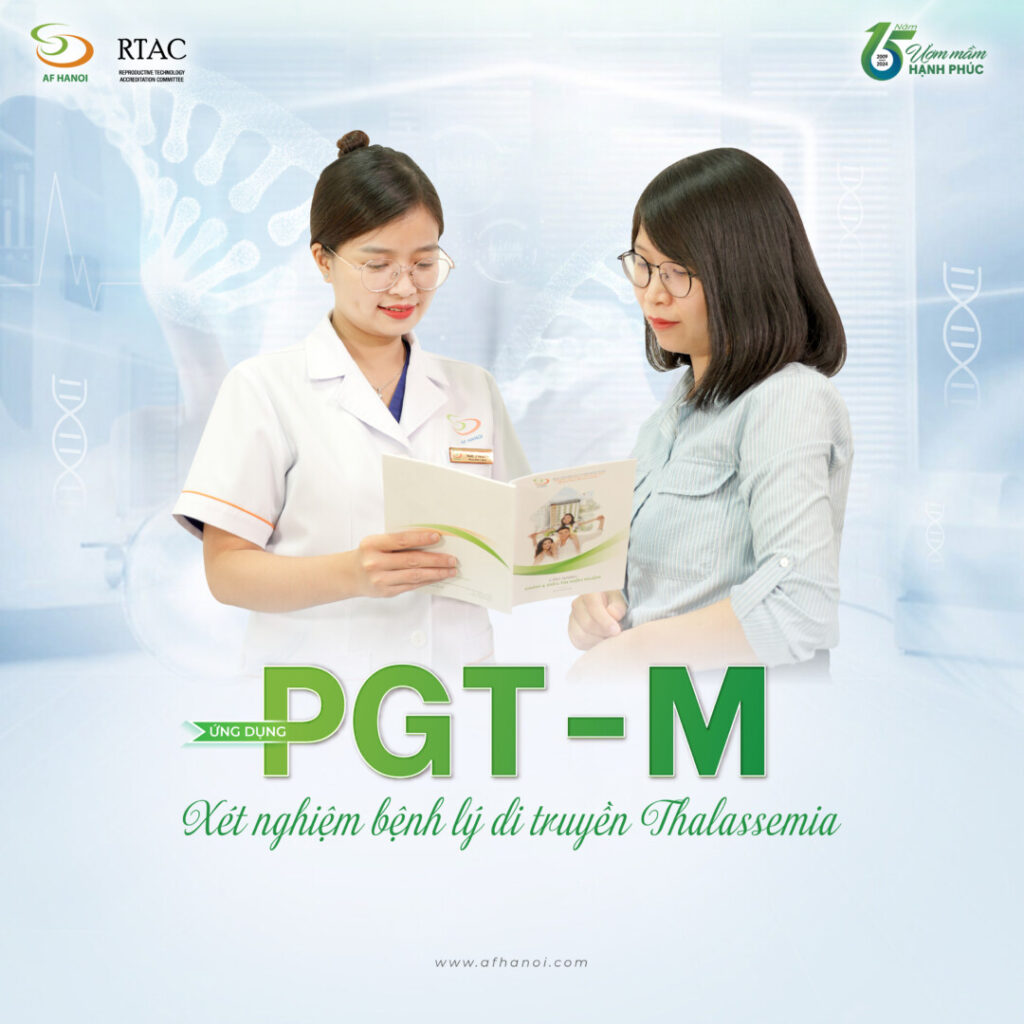13/11/2024

The PGT-M (Preimplantation Genetic Testing for Monogenic Disorder), also commonly known as PGD (Preimplantation Genetic Diagnosis), is a genetic testing conducted before embryo implantation. This technique can analyze the embryo’s genetics from an early stage to detect whether any known mutations inherited from the parents to the embryo.
Embryos that are at risk of the disease are discarded, while healthy embryos, free from the genetic disorder, are selected for implantation into the mother’s uterus. The effectiveness of this method has been proven to help reduce the occurrence of children being born with genetic disorders and minimize the need for pregnancy termination in cases where the fetus shows signs of severe anemia or hydrops fetalis.
Early detection and screening play a crucial role in treatment prognosis. If both the husband and wife are carriers of the Thalassemia gene, there is a 25% chance that their child will be affected by the disorder. Therefore, couples planning to have children, especially those with a family history of Thalassemia, should undergo screening to detect potential genetic risks and take appropriate preventive measures using the PGT-M.
PGT-M not only effective in diagnosing Thalassemia, but also helps in diagnosing various other rare monogenic genetic disorders in embryos, such as Duchenne muscular dystrophy, spinal muscular atrophy, Hemophilia, congenital adrenal hyperplasia, and more.
